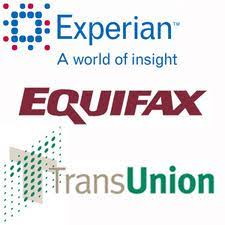|
Temporary Lifting of Security Freezes on Credit Information Required for Some Background Investigations
DPSAC wants to remind individuals who will occupy positions of public trust or higher to temporarily lift security freezes on their credit report in order for the Office of Personnel Management (OPM)-National Background Investigations Bureau (NBIB) to conduct and complete background investigations.
The OPM-NBIB has experienced an increase in the number of national credit bureau reports that are unobtainable due to individuals placing a security freeze on their credit reports.
When OPM-NBIB is unable to obtain a tri-bureau credit report due to one, two, or all three bureaus having a security freeze, the overall effect is an incomplete investigation.
In order to ensure the quality of OPM's investigative products, individuals who have a security freeze in place must lift the freeze temporarily prior to submission of the e-QIP to the DPSAC office. This requirement applies to national credit bureau checks which are conducted as extra coverage for positions of 'public trust' or higher.
What is a security freeze?
A security freeze is designed to prevent credit, loans and services from being approved in your name without your consent, but may also delay or interfere with or prohibit the timely approval of any subsequent requests or application you make regarding new credit, loans or services.
Credit bureaus, also called credit reporting agencies, are companies that collect and maintain consumer credit information then resell it to other businesses in the form of a credit report.
How to contact the credit bureaus
There are many credit bureaus in the United States, but most people are familiar with the big three: Equifax, Experian and TransUnion. These bureaus are all publicly-traded, for-profit companies not owned by the Federal Government.
Contact Information for the Three Credit Bureaus
Equifax - www.equifax.com 
P.O. Box 740241
Atlanta, GA 30374-0241
1-800-685-1111
Experian - www.experian.com
P.O. Box 2104
Allen, TX 75013-0949
1-888-EXPERIAN (397-3742)
TransUnion - www.transunion.com
P.O. Box 1000
Chester, PA 19022
1-800-916-8800
Credit bureaus have business relationships with many banks, credit card issuers, and other businesses that you may have an account with. Because of this connection, your account history will appear on one or all three of your credit reports with these bureaus.
You have a right to view your credit report and you can order a free credit report from each of the three major credit bureaus each year through
www.AnnualCreditReport.com.
You can also purchase a credit report directly from any of the credit bureaus at any time. Two of the credit bureaus, Equifax and Experian, offer 3-bureau credit reports which include all three major credit reports in a single document. As reported in the following article, Equifax recently announced that it has waived its fees to Place, Temporarily Lift or Permanently Remove a Security Freeze through June 30, 2018.
Credit Bureau Differences
These three credit bureaus, like all other credit bureaus, are separate entities and operate independently of each other. They generally do not share your account information with each other.
Your creditors may report to all three of the major credit bureaus or just one of them. Because of that, the information in your credit file may be different between the three credit bureaus.
When potential creditors and lenders check your credit, they may only pull one bureau's credit report, rather than viewing all three. Because your credit reports may be different from each other, it's important that you review your reports from all three bureaus.
|